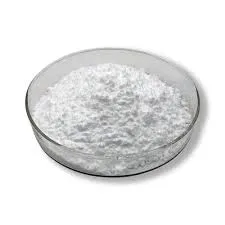
Nov . 20, 2024 14:37 Back to list
mortar bonding additive
The Role of Mortar Bonding Additives in Construction
In the world of construction, ensuring the durability and strength of structures is paramount. One critical component that often dictates the quality of a building's integrity is the masonry or mortar used to bind bricks and blocks. To enhance the performance of conventional mortar, various additives have emerged, among which mortar bonding additives play a vital role.
What Are Mortar Bonding Additives?
Mortar bonding additives are chemical compounds or materials that are integrated into the mortar mix to improve its adhesion properties, flexibility, and resilience. These additives can be derived from synthetic polymers or natural substances and are designed to create a stronger bond between the mortar and the surfaces it adheres to, such as bricks, concrete blocks, and other masonry materials.
Benefits of Using Mortar Bonding Additives
1. Enhanced Adhesion One of the primary functions of mortar bonding additives is to improve the bond strength between the mortar and the substrate. This is particularly beneficial for applications where traditional mortar may not provide sufficient adherence, promoting structural integrity.
2. Increased Flexibility Many bonding additives impart additional flexibility to the mortar. This characteristic is essential in regions susceptible to temperature fluctuations and seismic activity, allowing the structure to accommodate movement without cracking or compromising the bond.
3. Water Resistance Some bonding additives offer improved water resistance to the mortar, making it suitable for use in damp or high-moisture environments. This property minimizes the risk of efflorescence and potential water damage over time.
mortar bonding additive

4. Reduction of Shrinkage Mortar bonding additives can help reduce the shrinkage that occurs as the mortar cures. Minimizing shrinkage is crucial for maintaining joint integrity and preventing cracks, which can compromise the overall durability of the masonry.
5. Ease of Application Incorporating bonding additives into the mortar mix can often improve workability, allowing for easier application by masons. This can lead to better finishes and overall efficiency on the job site.
6. Versatility in Use Mortar bonding additives are versatile and can be used in a variety of applications, including bricklaying, stone masonry, and tile setting. Their adaptability makes them a valuable asset in the construction industry.
Selecting the Right Mortar Bonding Additive
When choosing a mortar bonding additive, it is essential to consider the specific project requirements, including environmental conditions and intended use. Various types of additives are available, such as latex-based, epoxy-based, and various polymer-modified formulations. Each type has its unique set of properties, and selecting the right one can make a significant difference in the long-term performance of the mortar.
Conclusion
In conclusion, mortar bonding additives are an invaluable component in modern masonry construction. They enhance the physical properties of mortar, ensuring better adhesion, flexibility, and overall resilience. As construction practices continue to evolve, the use of bonding additives not only meets the demands of contemporary building requirements but also improves the longevity and durability of structures. Investing in high-quality mortar bonding additives is not just an option; it is indispensable for any construction professional looking to achieve superior results in their projects. As the industry moves forward, the role of these additives will undoubtedly grow, solidifying their position as crucial elements in creating robust and enduring buildings.
-
Versatile Hpmc Uses in Different Industries
NewsJun.19,2025
-
Redispersible Powder's Role in Enhancing Durability of Construction Products
NewsJun.19,2025
-
Hydroxyethyl Cellulose Applications Driving Green Industrial Processes
NewsJun.19,2025
-
Exploring Different Redispersible Polymer Powder
NewsJun.19,2025
-
Choosing the Right Mortar Bonding Agent
NewsJun.19,2025
-
Applications and Significance of China Hpmc in Modern Industries
NewsJun.19,2025







